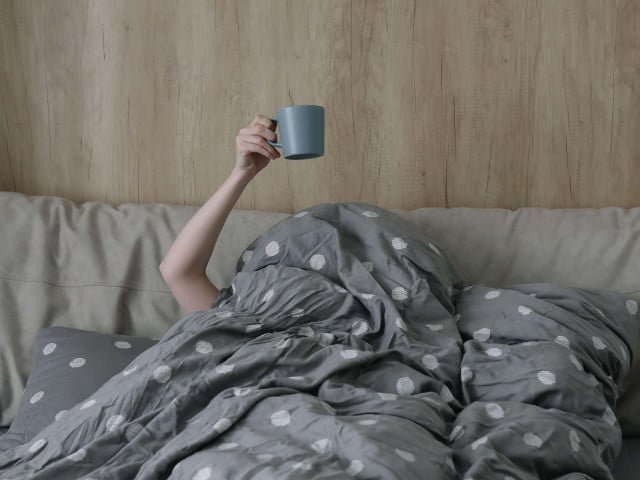PUBLISHED
January 20, 2025
As the cold months roll in, many people find it more challenging to get a good night’s sleep. From shorter days to colder temperatures, winter presents various factors that disrupt our usual sleep patterns.
Understanding these challenges can help us make small changes to improve our sleep during this season.
Less natural light
Winter brings shorter days and longer nights, which means reduced exposure to sunlight. Natural light plays a crucial role in regulating our circadian rhythm, the body’s internal clock. A lack of sunlight can cause this rhythm to get out of sync, making it harder to fall asleep and wake up at the right times. This can also lead to a decrease in serotonin levels, affecting mood and contributing to conditions like seasonal affective disorder (SAD).
Cold weather and sleep quality
While chilly weather can be comforting at first, it can negatively affect sleep. Our bodies naturally cool down while we sleep, and if the room is too cold, it can be difficult to fall asleep or stay comfortable. On the other hand, too much warmth can also disrupt sleep by preventing our body from reaching its ideal resting temperature.
Reduced physical and social activity
Winter often keeps us indoors, which results in less physical activity. Exercise is essential for good sleep, so when we’re less active, it can become harder to fall into a deep, restorative sleep. Additionally, reduced social interactions can lead to feelings of isolation, which may further affect both mental health and sleep quality.
How to Improve Your Sleep During Winter

Maximise daylight exposure
Combat the effects of limited sunlight by spending time outside during daylight hours. Even a brief walk can help reset your circadian rhythm and improve your mood. If you can’t get outside often, light therapy boxes can simulate natural light and help regulate your sleep cycle.
Stick to a consistent sleep schedule
Winter can easily throw off sleep routines, but maintaining a regular bedtime and wake time is essential for sleep quality. Try to stick to your schedule even on weekends. Keeping your internal clock on track will make it easier to fall asleep and wake up feeling refreshed.
Create a cozy sleep environment
Make your bedroom the perfect sleep sanctuary. The ideal temperature for sleep is between 60 to 67 degrees Fahrenheit (15 to 19 degrees Celsius). Layer up with warm bedding or cozy pyjamas, but avoid overheating as it can make sleep uncomfortable. A humidifier can help maintain good air quality and prevent the dryness that often accompanies the season.
Stay active during the day
Staying active can significantly improve your sleep quality. If you can’t get outside, try home workouts, yoga, or even indoor activities to stay moving. Exercise helps promote deeper sleep, so even small amounts of physical activity can lead to better rest.
Be mindful of your diet and caffeine
What you eat and drink affects your sleep. Avoid heavy meals and caffeine close to bedtime, as they can interfere with your ability to fall asleep. Instead, opt for a light snack, like a banana or nuts, which are rich in magnesium and can support restful sleep.
Winter doesn’t have to be a season of sleepless nights. By making small adjustments to our routines and sleep environments, we can embrace the colder months without sacrificing the quality of our rest. A little awareness can go a long way toward ensuring that we wake up feeling rejuvenated, no matter the weather outside.











